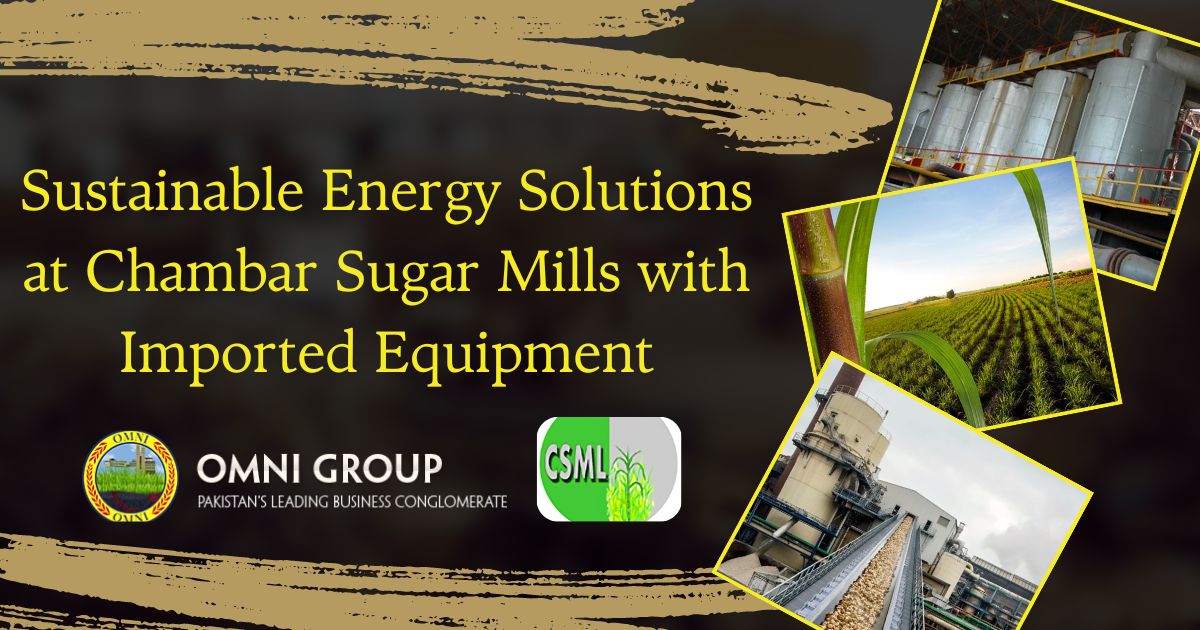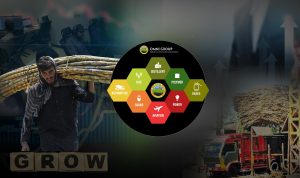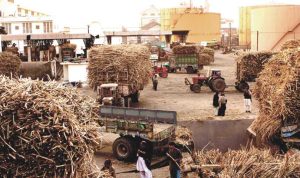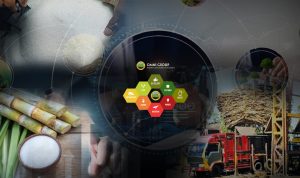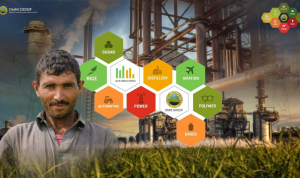Chambar Sugar Mills, a prominent entity within the sugar industry, began its operations in 2011. This mill, formerly known as Bachani Sugar Mills Ltd., was acquired by the Omni Group in May 2011. Situated strategically at Deh: Chuch, Union Council Chambar 2, Taluka: Chambar, District: Tando Allayar, Sindh, the mill is located just 14 kilometers away from Tando Allayar Sugar Mills (Pvt.) Ltd., playing a vital role in the regional sugar production landscape.
The majority of the sugar processing equipment at Chambar Sugar Mills was procured from Heavy Mechanical Complex (HMC). The facility boasts a comprehensive array of processing equipment, including two Boiler Houses, a Power House, a Process House, and a Mill House. The equipment for the Power House was imported from Peter Brotherhood, England, ensuring robust and reliable power generation capabilities. Additionally, the turbines and refining machines were sourced from Broad Bent Centrifugal Machines, England, underscoring the mill’s commitment to quality and efficiency.
Chambar Sugar Mills operates with a crushing capacity of 5,000 tons of cane per day (TCD). The mill produces a variety of products including white refined sugar, molasses, bagasse, and pressmud. The white refined sugar produced is of R1 grade, adhering to high-quality standards.
The Need for Sustainable Energy Solutions
The global push towards sustainability has highlighted the need for industries to adopt cleaner energy solutions. The sugar industry, known for its energy-intensive processes, is particularly under scrutiny. Sustainable energy solutions not only help in reducing greenhouse gas emissions but also in cutting operational costs and improving efficiency.
Imported Equipment: A Step Towards Modernization
Chambar Sugar Mills has invested in state-of-the-art imported equipment designed to enhance energy efficiency and sustainability. This equipment includes advanced boilers, energy-efficient turbines, and waste-to-energy systems. These technologies are pivotal in transforming the traditional sugar milling process into a more sustainable and eco-friendly operation.
Key Features of the Imported Equipment
Advanced Boilers: The imported boilers are designed to maximize energy output while minimizing fuel consumption. These boilers utilize bagasse, a byproduct of sugarcane, as a primary fuel source, turning waste into a valuable energy resource.
Energy-Efficient Turbines: The new turbines are highly efficient, converting more of the steam produced from the boilers into electrical and mechanical energy. This reduces the overall energy consumption and enhances the mill’s power generation capabilities.
Waste-to-Energy Systems: These systems are designed to convert organic waste produced during the sugar milling process into biogas. This biogas is then used to generate electricity, further reducing reliance on non-renewable energy sources.
Environmental and Economic Benefits
The integration of these advanced systems provides numerous environmental and economic benefits:
Reduced Carbon Footprint: By using bagasse and other organic waste as fuel, Chambar Sugar Mills significantly reduces its carbon emissions, contributing to a cleaner environment.
Lower Operational Costs: Energy-efficient equipment reduces fuel consumption and operational costs, making the milling process more economically viable.
Enhanced Energy Independence: Generating power on-site reduces dependence on external energy sources, ensuring a more stable and reliable energy supply.
Waste Minimization: Converting waste into energy not only addresses waste disposal issues but also turns potential pollutants into useful resources.
Future Prospects
Chambar Sugar Mills’ commitment to sustainability is set to inspire other mills in the region and beyond. The success of this initiative could lead to widespread adoption of similar technologies across the industry, fostering a more sustainable and environmentally friendly sugar production sector.
Chambar Sugar Mills’ adoption of imported sustainable energy solutions marks a significant step towards a greener and more efficient future. By leveraging advanced technology, the mill not only enhances its operational efficiency but also sets a precedent for sustainability in the sugar industry. This initiative reflects a broader commitment to environmental stewardship and economic resilience, paving the way for a more sustainable industrial landscape.
